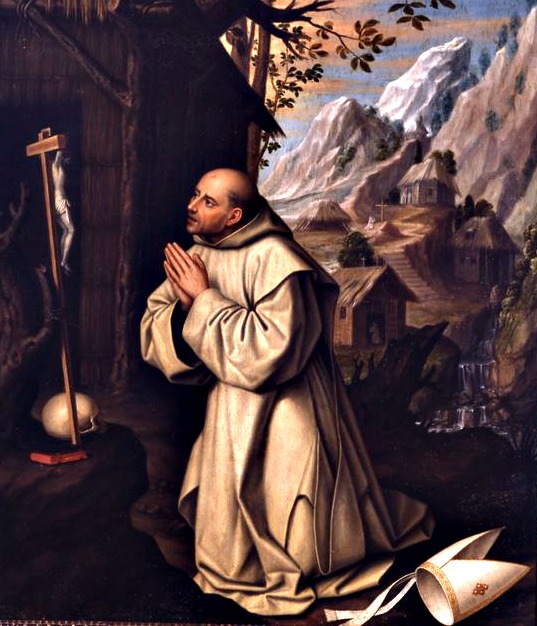St. Bruno
St. Bruno
St. Bruno, born in Cologne about 1030, was the founder of a religious Order, the Carthusians. His mother was St. Matilda, patroness of Maude, widow of King Henry I. Excepting St. Norbert, he is the only German having that honor. His contemporaries called him the light of the Church, the flower of the clergy, the glory of Germany and France. Early in life he was a canon at Cologne and Rheims. The persecution by the simoniacal archbishop of Rheims, Manasses, hastened his resolve to enter a life of solitude (1084). Legend puts it this way. A famous professor had died. While the Office of the Dead was being chanted at his funeral, he suddenly raised himself up from the coffin and said: “By the just judgment of God have I been accused, judged, damned.” Thereupon Bruno renounced the world. He received from Hugo, bishop of Grenoble, a site called Chartreuse (from the color of the surrounding hills) as a place of residence.

The Order founded by Bruno is one of the strictest in the Church. Carthusians follow the Rule of St. Benedict, but accord it a most austere interpretation; there is perpetual silence and complete abstinence from flesh meat (only bread, legumes, and water are taken for nourishment). Bruno sought to revive the ancient eremitical way of life. His Order enjoys the distinction of never becoming unfaithful to the spirit of its founder, never needing a reform. Six years after initiating the foundation, Bruno was called to Rome by Pope Urban II as personal counselor. He complied with a heavy heart. However, when the Pope was forced to flee to Campania because of Emperor Henry IV, Bruno found a wilderness similar to that of Chartreuse at La Torre; there he made a second foundation, which blossomed into a flourishing community. Here in September, 1101, he became severely ill. Having called together his followers, Bruno made a public confession and died on October 6, 1101, at the age of seventy-one.
Excerpted from The Church’s Year of Grace, Pius Parsch